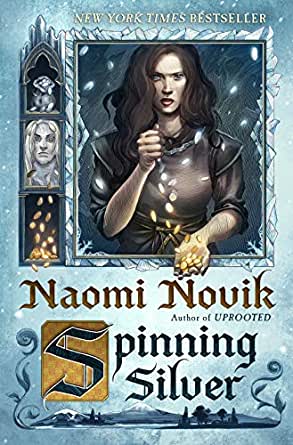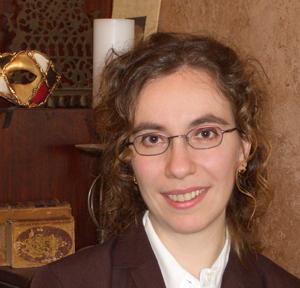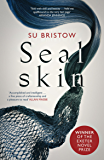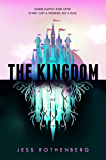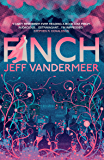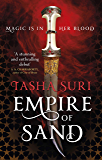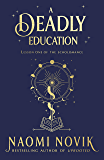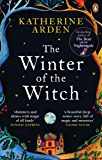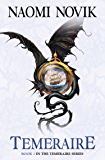Kaufoptionen
| Kindle-Preis: | EUR 8,72 |
| inkl. USt. |


![Spinning Silver: A Novel (English Edition) von [Naomi Novik]](https://iza-server.uibk.ac.at/pywb/dilimag/20210113092156im_/https://m.media-amazon.com/images/I/516KQqmKjzL._SY346_.jpg)
Dem Autor folgen
OK
Spinning Silver: A Novel (English Edition) Kindle Ausgabe
|
Naomi Novik
(Autor)
Finden Sie alle Bücher, Informationen zum Autor
und mehr.
Siehe Suchergebnisse für diesen Autor
Sind Sie ein Autor?
Erfahren Sie mehr über Author Central
|
|
Preis
|
Neu ab | Gebraucht ab |
| Kindle, 10. Juli 2018 |
8,72 €
|
— | — |
|
Audible Hörbuch, Ungekürzte Ausgabe
"Bitte wiederholen"
|
Gratis im Audible-Probemonat | ||
|
Gebundenes Buch
"Bitte wiederholen"
|
23,37 € | 16,80 € |
|
Taschenbuch
"Bitte wiederholen"
|
9,18 € | 19,79 € |
-
Sprache:Englisch
-
HerausgeberDel Rey
-
Erscheinungstermin10. Juli 2018
-
Dateigröße4539 KB
Kunden, die diesen Artikel gekauft haben, kauften auch
Produktbeschreibungen
Buchrückseite
PRAISE FOR NAOMI NOVIK
‘The magic in Uprooted, with its realistic moral dimension, is so vividly believable that it almost seems you could work the spells. But the book will do that for you’
Ursula K. Le Guin
‘Enchanting, in every sense of that fine old word. A charming and inviting story that looks unflinchingly at the strangling roots of hurt and revenge’
Robin Hobb
‘A great heroine, new takes on old myths and legends, and surprising twists and turns. A delight’
Cassandra Clare
‘Uprooted has everything I love about Novik’s writing style, with the added bonus of some old-world magic and the flavour of a dark faerie story’
Patrick Rothfuss
‘What a read. I absolutely loved it . . . A fairy tale for a modern audience. Highly recommended’
John Gwynne
‘Magical and practical, otherworldly and planted in the real, I could NOT stop reading this book and neither will you!’
Tamora Pierce
‘Wild, thrilling, and deeply, darkly magical. An instant classic’
Lev Grossman
Werbetext
Über den Autor und weitere Mitwirkende
Pressestimmen
A book as cool and mysterious as a winter’s night, with two marvelous heroines at its heart. Spinning Silver pits the cold of endless winter against the fires of duty, love and sacrifice. I couldn’t put it down
Dauntless women, cruel lords and wayward fairies come together in a beautifully realised world. Brimming over with fairy-tale magic, SPINNING SILVER proves Naomi Novik to be a master fantasist at the top of her game
Lovely, intricate and strong. A gorgeous read. The sort of book one reads again and again
Enchanting, in every sense of that fine old word. A charming and inviting story that looks unflinchingly at the strangling roots of hurt and revenge
I didn't know how much I wanted to read a book like this until it was already in my hands. Uprooted has everything I love about Novik's writing style, with the added bonus of some old world magic and the flavor of a dark faerie story
The magic in Uprooted, with its realistic moral dimension, is so vividly believable that it almost seems you could work the spells. But the book will do that for you
Uprooted has everything I love: a great heroine, new takes on old myths and legends, and surprising twists and turns. A delight
This gorgeous, complex, and magical novel...rises well above a mere modern re-imagining of classic tales…Novik probes the edges between the everyday and the extraordinary, balancing moods of wonder and of inevitability. Her work inspires deep musings about love, wealth, and commitment, and embodies the best of the timeless fairy-tale aesthetic…This is the kind of book that one might wish to inhabit forever
A remarkable achievement... Confirms a huge step forward for Novik -- Dieser Text bezieht sich auf eine andere Ausgabe: hardcover.
Klappentext
Leseprobe. Abdruck erfolgt mit freundlicher Genehmigung der Rechteinhaber. Alle Rechte vorbehalten.
The real story isn’t half as pretty as the one you’ve heard. The real story is, the miller’s daughter with her long golden hair wants to catch a lord, a prince, a rich man’s son, so she goes to the moneylender and borrows for a ring and a necklace and decks herself out for the festival. And she’s beautiful enough, so the lord, the prince, the rich man’s son notices her, and dances with her, and tumbles her in a quiet hayloft when the dancing is over, and afterwards he goes home and marries the rich woman his family has picked out for him. Then the miller’s despoiled daughter tells everyone that the moneylender’s in league with the devil, and the village runs him out or maybe even stones him, so at least she gets to keep the jewels for a dowry, and the blacksmith marries her before that firstborn child comes along a little early.
Because that’s what the story’s really about: getting out of paying your debts. That’s not how they tell it, but I knew. My father was a moneylender, you see.
He wasn’t very good at it. If someone didn’t pay him back on time, he never so much as mentioned it to them. Only if our cupboards were really bare, or our shoes were falling off our feet, and my mother spoke quietly with him after I was in bed, then he’d go, unhappy, and knock on a few doors, and make it sound like an apology when he asked for some of what they owed. And if there was money in the house and someone asked to borrow, he hated to say no, even if we didn’t really have enough ourselves. So all his money, most of which had been my mother’s money, her dowry, stayed in other people’s houses. And everyone else liked it that way, even though they knew they ought to be ashamed of themselves, so they told the story often, even or especially when I could hear it.
My mother’s father was a moneylender, too, but he was a very good one. He lived in Vysnia, forty miles away by the pitted old trading road that dragged from village to village like a string full of small dirty knots. Mama often took me on visits, when she could afford a few pennies to pay someone to let us ride along at the back of a peddler’s cart or a sledge, five or six changes along the way. Sometimes we caught glimpses of the other road through the trees, the one that belonged to the Staryk, gleaming like the top of the river in winter when the snow had blown clear. “Don’t look, Miryem,” my mother would tell me, but I always kept watching it out of the corner of my eye, hoping to keep it near, because it meant a quicker journey: whoever was driving the cart would slap the horses and hurry them up until it vanished again.
One time, we heard the hooves behind us as they came off their road, a sound like ice cracking, and the driver beat the horses quick to get the cart behind a tree, and we all huddled there in the well of the wagon among the sacks, my mother’s arm wrapped around my head, holding it down so I couldn’t be tempted to take a look. They rode past us and did not stop. It was a poor peddler’s cart, covered in dull tin pots, and Staryk knights only ever came riding for gold. The hooves went jangling past, and a knife-wind blew over us, so when I sat up the end of my thin braid was frosted white, and all of my mother’s sleeve where it wrapped around me, and our backs. But the frost faded, and as soon as it was gone, the peddler said to my mother, “Well, that’s enough of a rest, isn’t it,” as if he didn’t remember why we had stopped.
“Yes,” my mother said, nodding, as if she didn’t remember either, and he got back up onto the driver’s seat and clucked to the horses and set us going again. I was young enough to remember it afterwards a little, and not old enough to care about the Staryk as much as about the ordinary cold biting through my clothes, and my pinched stomach. I didn’t want to say anything that might make the cart stop again, impatient to get to the city and my grandfather’s house.
My grandmother would always have a new dress for me, plain and dull brown but warm and well-made, and each winter a pair of new leather shoes that didn’t pinch my feet and weren’t patched and cracked around the edges. She would feed me to bursting three times every day, and the last night before we left she would always make cheesecake, her cheesecake, which was baked golden on the outside and thick and white and crumbly inside and tasted just a little bit of apples, and she would make decorations with sweet golden raisins on the top. After I had slowly and lingeringly eaten every last bite of a slice wider than the palm of my hand, they would put me to bed upstairs, in the big cozy bedroom where my mother and her sisters had slept as girls, in the same narrow wooden bed carved with doves. My mother would sit next to her mother by the fireplace, and put her head on her shoulder. They wouldn’t speak, but when I was a little older and didn’t fall asleep right away, I would see in the firelight glow that both of them had a little wet track of tears down their faces.
We could have stayed. There was room in my grandfather’s house, and welcome for us. But we always went home, because we loved my father. He was terrible with money, but he was endlessly warm and gentle, and he tried to make up for his failings: he spent nearly all of every day out in the cold woods hunting for food and firewood, and when he was indoors there was nothing he wouldn’t do to help my mother. No talk of woman’s work in my house, and when we did go hungry, he went hungriest, and snuck food from his plate to ours. When he sat by the fire in the evenings, his hands were always working, whittling some new little toy for me or something for my mother, a decoration on a chair or a wooden spoon.
But winter was always long and bitter, and every year I was old enough to remember was worse than the one before. Our town was unwalled and half nameless; some people said it was called Pakel, for being near the road, and those who didn’t like that, because it reminded them of being near the Staryk road, would shout them down and say it was called Pavys, for being near the river, but no one bothered to put it on a map, so no decision was ever made. When we spoke, we all only called it town. It was welcome to travelers, a third of the way between Vysnia and Minask, and a small river crossed the road running from east to west. Many farmers brought their goods by boat, so our market day was busy. But that was the limit of our importance. No lord concerned himself very much with us, and the tsar in Koron not at all. I could not have told you whom the tax collector worked for until on one visit to my grandfather’s house I learned accidentally that the Duke of Vysnia was angry because the receipts from our town had been creeping steadily down year to year. The cold kept stealing out of the woods earlier and earlier, eating at our crops.
And the year I turned sixteen, the Staryk came, too, during what should have been the last week of autumn, before the late barley was all the way in. They had always come raiding for gold, once in a while; people told stories of half-remembered glimpses, and the dead they left behind. But over the last seven years, as the winters worsened, they had grown more rapacious. There were still a few leaves clinging to the trees when they rode off their road and onto ours, and they went only ten miles past our village to the rich monastery down the road, and there they killed a dozen of the monks and stole the golden candlesticks, and the golden cup, and all the icons painted in gilt, and carried away that golden treasure to whatever kingdom lay at the... -- Dieser Text bezieht sich auf eine andere Ausgabe: kindle_edition.
Produktinformation
- ASIN : B077WXP3KG
- Herausgeber : Del Rey (10. Juli 2018)
- Sprache: : Englisch
- Dateigröße : 4539 KB
- Text-to-Speech (Vorlesemodus) : Aktiviert
- Verbesserter Schriftsatz : Aktiviert
- X-Ray : Aktiviert
- Word Wise : Aktiviert
- Seitenzahl der Print-Ausgabe : 465 Seiten
-
Amazon Bestseller-Rang:
Nr. 125,708 in Kindle-Shop (Siehe Top 100 in Kindle-Shop)
- Nr. 624 in Mythologie (englischsprachig)
- Nr. 1,508 in Action- & Abenteuerromane (englischsprachig)
- Nr. 3,174 in Fantasy (englischsprachig)
- Kundenrezensionen:
Kunden, die dieses Buch gelesen haben, lesen auch
Kundenrezensionen
Spitzenbewertungen aus Deutschland
Derzeit tritt ein Problem beim Filtern der Rezensionen auf. Bitte versuchen Sie es später noch einmal.
Inhaltlich ist dieses Rumpelstilzchen Thema eigentlich ganz gut aufgearbeitet, aber in diesem Buch bin ich mit Noviks Schreibstil überhaupt nicht zurecht gekommen... ich habe nie wirklich in das Buch reingefunden und auch die Personen sind für mich eher oberflächlich geblieben - sozusagen keine Identifikation mit der Geschichte, damit auch kein Versinken in der Geschichte.
Ich möchte bei einem Buch unterhalten werden - OK, dass ich aufpassen muss, was ich da lese, ist gegeben, aber diese ständig wechselnde Perspetive und Ich-Erzählung, bei der ich dann genau aufpassen muss, wer denn jetzt gerade "ich" ist, war für mich nervig. Ich lese überwiegend abends im Bett vor dem Schlafen - da ist die Konzentration vielleicht auch nicht mehr so hoch, aber ich hätte mir gewünscht, die Kapitel hätten einen Titel / Namen gehabt und zwar der Person, die jetzt gerade "ich" wird... bei anderen "Unterhaltungs"büchern hatte ich bis jetzt keine Probleme der Handlung zu folgen ;-)
leichter Spoiler: dieses zuckersüße happy ending hätte auch nicht sein müssen
Then there is Wanda, a poor girl abused by her father, who by chance gets to work for Miryem. And Irina, the not so beautiful daughter of a Duke who manages to wed her to the tsar. Who regrettably is possessed by a fire demon.
There are other POVs that sadly don’t make the story better. They aren’t very interesting and mostly add lots of pages of non-action.
Miryem and Irina are both very different, yet awesome characters whom I loved to follow. If only the wonderful beginning and end of the book weren’t blown up by too many filler pages in the middle. There the book really dragged. The twists and turns the story takes were just great and I loved them. And what N. Novik made out of the fairytales the plot is based on, is astonishing. If it were any more focused and a little less convoluted, this would have been a masterpiece.
Wow, yes, ok, this was even better than Uprooted by Naomi Novik, which I gave 5 stars as well.
Spinning Silver had the same feel to it as Uprooted, which is: a fairy tale with magic, sorcerers and villains who are not what they seem to be.
The story revolves around three girls who couldn’t be more different from each other: Miryem – a Jewish girl growing cold inside to save her family, Wanda – beaten by her father and worth only three pigs to him, and Irina – daughter to a duke who plans to marry her off to the tsar.
After one cold hard winter too many, Miryem decides to do what her father can’t. She collects all the money they are owed and leads her family into a comfortable life. She is surprisingly gifted at bargaining and silver seems to turn into gold in her hands. But because of one poor phrased remark, she catches the attention of the Staryk, fairy-like creatures that kill, steal and rape and seem to be winter itself.
The Staryk king himself appears at her front door and gives her a task. She has to turn silver into gold for him three times. If she succeeds, he will make her his queen. Should she fail, he will turn her into ice.
Trying to escape her death, Miryem unwittingly involves both Wanda and Irina.
And not only Miryem ends up married to a monster, but Irina as well.
"“So the fairy silver brought you a monster of fire for a husband, and me a monster of ice. We should put them in a room together and let them make us both widows.”"
The moment the tsar sees Irina, he wants to marry her. But Irina is not beautiful or special in any way, and she soon realizes why the tsar wanted her. For it is not the beautiful tsar’s wish, but the demon’s living inside of him.
Together, Miryem and Irina try escape their husbands and save the kingdom along the way.
I loved this so much. I loved the characters, the subplots, the magic, the hints at various fairy tales. This book is said to be a Rumpelstiltskin retelling, but it is so much more than that. And the elements that are taken from Rumpelstiltskin are scattered through the story, making it a completely new one. I love it.
The story is told from the first person narrator and changes POVs regularly. I’m not used to that at all, but I found myself enjoying the different voices and thoughts. Everytime we changed setting, I wanted to stay and learn more about that subplot, but I also wanted to know what happend in the next one and arghh… I just liked every story and wasn’t bored by a single one of them.
I can’t believe there is no sequel planned because I. Need. More. Man, I don’t even really need a plot, I just want to know how all the characters are going to live their lives!
Spitzenrezensionen aus anderen Ländern
It’s a complicated tale with three main protagonists, Miryem, the moneylender’s daughter, Wanda, who becomes her servant and is desperate to escape her drunken abusive father and Irena, the Duke’s eldest daughter by his first wife, whose bookish nature and plain looks have been a constant disappointment – until the Tsar comes to visit…
The story bounces between these three young women as their fates increasingly become intertwined. There is a fair amount of explanation – with pages when Novik is telling the story rather than having her characters speak, which I normally dislike. But I’m going to give her a pass on this one – firstly because it didn’t jar with me. This is, after all, a fairy story, which is always told from the outside in. Secondly, because though there is a fair amount of exposition, it was necessary in this complex plot and it didn’t stop Novik from immersing us in the thoughts and fears of her main protagonists. Thirdly, it was a delightfully long book with an unusually dense story, which I loved.
I’m aware this is a Marmite book – those aspects I’ve listed above as pluses have also exasperated some readers, preventing them from bonding with this book. Normally, I love a story to unfold from the inside out, but I simply think this time around it wouldn’t have worked so effectively. All I would say is – give it a go and discover for yourself if this one is for you. If you enjoy it, you’ll thank me. This is one that has had me continuing to ponder it since I’ve read it – always a sign that a book has properly got under my skin and it’s recommended for fantasy fans who like detailed worlds with plenty of unexpected twists.
On another level, this story is an engaging mediation on the nature of indebtedness, and gifts; of honour and honesty. Love wins in the end, but it is long in making its appearance. Until then the tale is ruled by cold justice and fair return, or hot injustice.
As always, Novik's writing is fluent, engaging, and often poetic. It conveys the flavour of it's setting in its very cadences. I highly recommend this!
Each character is beautifully fleshed out, with flaws and redeeming factors in equal measure. Nobody was too perfect, or too evil, and as such the world and its plot seemed absolutely plausible - despite being set in a world with magic and other goings on.
I wholeheartedly recommend this book for those who love an enthralling story, set in a world that both resembles and does not resemble our own, that is well written with just the right amount of mystery throughout.
Miryem, the Jewish Moneylenders daughter (who is actually far better at it than her father), has a reputation for turning silver in to gold, and this reaches the ears of the Staryk King, who demands that she change his silver in to gold. Which she does three times; the consequences of which aren’t quite what she expects.
Novik writes good female characters, without any doubt. Miryem, whotakes over her father’s moneylending business and saves her family; Irena, the daughter of a Duke, who marries the demon possessed Tsar; and Wanda, the daughter of a destitute, drunk farmer, who by luck comes to pay off her father’s debts by working for Miryem.
These women’s lives converge to create a bewitching story of real human concerns: poverty, helplessness, strength found when needed, and how important it is to pay your debts!
I do hope Novik writes more books like this. I’ll buy them all!!
I don't think I'm in the right headspace for this book.
I'm listening to the audio and the narrator does not change the tone of her voice for any of the main female characters, and because it head hops without telling you which character it's after jumping to it gets extremely confusing.
I don't like having to figure out which view point I'm supposed to be in. I wasn't able to get lost or enjoy anything that was happening.
Some of the scenes are extremely confusing. At one point two characters have a full conversation and I was sitting there thinking, 'what just happened?' the whole scene made my head hurt and after that my interest plummeted.
Momentanes Problem beim Laden dieses Menüs.

